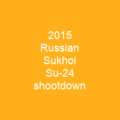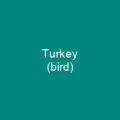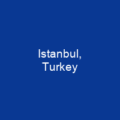Turkey: A Country of Rich History and Modern Progress
Imagine a country where ancient history intertwines with modern progress, where bustling cities meet serene landscapes, and where diverse cultures blend into a vibrant tapestry. Welcome to Turkey, officially the Republic of Türkiye—a land that has seen it all, from the dawn of human civilization to the digital age.
The Ancient Roots
Did you know that modern humans first set foot in what is now Turkey during the Late Paleolithic era? This place was home to various ancient peoples like the Hattians, Hittites, Greeks, and Romans. The Ottoman Empire, which lasted from 1299 until World War I, left an indelible mark on the region’s history. After the Turkish War of Independence, a new nation state emerged, paving the way for modern Turkey.
Geography and Biodiversity
Turkey’s geography is as diverse as its history. From the snow-capped mountains in the east to the sandy beaches along the Mediterranean coast, this country offers a wide range of landscapes. With 36 biodiversity hotspots, Turkey is home to unique wildlife species like the Anatolian leopard and the golden eagle. The Georgian straits and Sea of Marmara separate Western Asia from Southeastern Europe, making Turkey a strategic location with significant geopolitical importance.
Economy and Innovation
Turkey is an upper-middle-income country with a diverse economy. It ranks 8th in crude steel production and 13th in motor vehicle production globally. The country has a thriving tourism industry, welcoming millions of international visitors each year. Istanbul, the largest city, serves as both the economic center and a cultural hub.
Demographics and Culture
Turkey’s population is predominantly ethnic Turks (70-75%), with Kurds making up around 12-20% of the population. The country has a rich cultural heritage, with various local traditions coexisting alongside a national culture that includes sports leagues, music bands, and film stars. Turkish literature spans over a thousand years, from Seljuk and Ottoman periods to contemporary works like those by Orhan Pamuk.
Education and Healthcare
Educational attainment in Turkey has seen significant improvements over the past two decades. The country boasts 208 universities, with some of them ranking highly globally. The public healthcare system is universal, funded by a tax surcharge on employers, making it accessible to all citizens.
Architecture and Arts
Turkish architecture spans from Neolithic settlements like Çatalhöyük to the grandeur of Hagia Sophia in Istanbul. The country’s rich artistic heritage includes folk theatre, popular theatre, court theatre, and Western theater. Turkish music genres range from traditional folk to modern pop, with international stars emerging from this vibrant scene.
Modern Challenges
Turkey faces several challenges, including climate change vulnerability, high obesity rates, and air pollution. Despite these issues, the country is committed to achieving net-zero emissions by 2053. The government has implemented various policies aimed at improving infrastructure, reducing poverty, and enhancing social inclusion.
Conclusion
Turkey’s journey from ancient civilizations to a modern republic is nothing short of remarkable. From its strategic location to its rich cultural heritage, this country continues to evolve while preserving its historical roots. As Turkey looks towards the future, it remains a fascinating blend of tradition and progress, ready to embrace new challenges and opportunities.

You want to know more about Turkey?
This page is based on the article Turkey published in Wikipedia (retrieved on February 27, 2025) and was automatically summarized using artificial intelligence.







